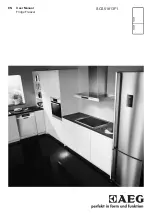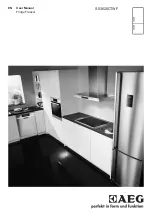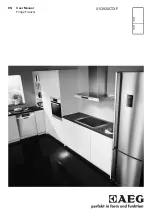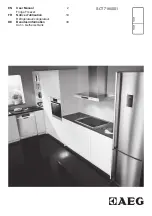
normal energy
consumption
increased energy
consumption
Installation
In a ventilated room.
In an enclosed, unventilated room.
Protected from direct sunlight.
In direct sunlight.
Not situated near to a heat source
(radiator, oven).
Situated near to a heat source
(radiator, oven).
Where the ambient room
temperature is ideal at approx.
20°C.
Where there is a high ambient room
temperature.
Temperature setting with
a thermostat which is
approximate
(set in stages).
With a medium setting of 2 to 3.
With a high setting: The lower the
compartment temperature, the
higher the energy consumption.
Temperature setting with
a thermostat which is
exact to the degree
(digital display).
Cellar section 8 to 12°C
On appliances with winter setting,
please make sure that the winter
setting is switched off when the
ambient temperature is warmer
than 16 °C.
Refrigerator section 4 to 5 °C
StayFresh zone approx. 0°C
Freezer section -18°C
Use
Only open the door when
necessary and for as short a time
as possible.
Frequent opening of the door for
long periods will cause a loss of
coldness.
Store food in an organised way.
If food is not stored in an organised
way, searching for an item will
mean the door is open for longer.
Allow hot food and drinks to cool
down before placing them in the
appliance.
Placing hot food in the appliance
will cause the compressor to run for
a long time, as the appliance will
have to work harder to lower the
temperature.
Store food covered or packaged.
The evaporation or condensation of
liquids will cause a loss of coldness
in the refrigerator.
Place frozen food in the refrigerator
to defrost.
Do not over-fill the sections to allow
air to circulate.
Defrosting
Defrost the freezer section when a
layer of ice one centimetre thick
has built up.
A layer of ice hinders the cold from
reaching the frozen food, and
causes an increase in energy
consumption.
How to save energy
10
Summary of Contents for F 4457 S
Page 35: ...35 ...











































